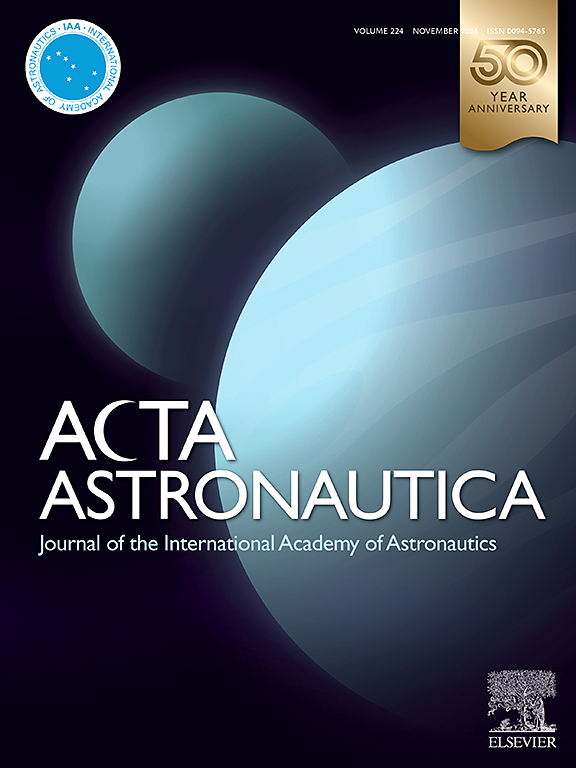Dynamics modeling and simulation analysis of a reusable high-pressure staged combustion LOX/kerosene variable thrust rocket engine
IF 3.1
2区 物理与天体物理
Q1 ENGINEERING, AEROSPACE
引用次数: 0
Abstract
Reusable liquid propellant rocket engines are critical propulsion systems for future space launches and, with the increasing diversity of space missions, have become a prominent research focus in the aerospace field. To address the unclear response characteristics of a reusable high-pressure staged combustion LOX/kerosene variable-thrust rocket engine, a simulation platform was established for a specific engine model. This platform comprehensively considers the effects of the turbopump, valves, gas generator, thrust chamber, and regenerative cooling channels. Simulations were conducted under single-point operating conditions to investigate the system’s response characteristics across different operating conditions, the variation of system performance parameters with thrust levels, and the effects of ignition timing gaps and start-up acceleration valves on the engine start-up process. The results indicate that reducing the ignition timing gap between the gas generator and the combustion chamber effectively decreases the risk of over-temperature and over-pressure in the gas generator. Additionally, during rapid start-up with the use of an acceleration valve, the fuel valve opening for the gas generator should be minimized to prevent fuel accumulation, which could lead to over-temperature conditions.
求助全文
约1分钟内获得全文
求助全文
来源期刊

Acta Astronautica
工程技术-工程:宇航
CiteScore
7.20
自引率
22.90%
发文量
599
审稿时长
53 days
期刊介绍:
Acta Astronautica is sponsored by the International Academy of Astronautics. Content is based on original contributions in all fields of basic, engineering, life and social space sciences and of space technology related to:
The peaceful scientific exploration of space,
Its exploitation for human welfare and progress,
Conception, design, development and operation of space-borne and Earth-based systems,
In addition to regular issues, the journal publishes selected proceedings of the annual International Astronautical Congress (IAC), transactions of the IAA and special issues on topics of current interest, such as microgravity, space station technology, geostationary orbits, and space economics. Other subject areas include satellite technology, space transportation and communications, space energy, power and propulsion, astrodynamics, extraterrestrial intelligence and Earth observations.
 求助内容:
求助内容: 应助结果提醒方式:
应助结果提醒方式:


